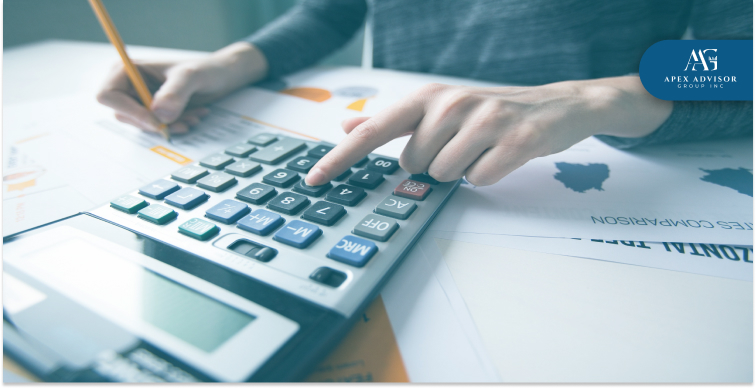Tax Strategies for Uncollectible Accounts Receivable

January 5, 2025
Money owed but not paid is a simple thing. It sits there, unpaid, and stares back at you. You can send letters, make calls, even knock on doors, but sometimes it doesn’t change. The debt stays. And then you have to decide what to do about it.
You could write it off, let it go, but that’s not the whole story. There are ways to turn that loss into something useful, ways to make it count. It’s not glamorous. It’s not exciting. But it’s practical, and in the end, it helps. So, let’s talk about it. Let’s figure out how to make sense of what’s owed but never comes back.
1) What Exactly Are Uncollectible Accounts Receivable?
Accounts receivable become uncollectible when a debtor, for one reason or another, fails to fulfill their financial obligation. It’s a circumstance no business welcomes, yet one that inevitably arises in the course of commerce.
The reasons behind such uncollectible accounts often trace back to financial hardships on the part of the debtor, the unfortunate declaration of bankruptcy, or unresolved disputes surrounding the invoice itself.
Such accounts, often deemed bad debts, have the potential to disrupt your cash flow and complicate your tax obligations if left unaddressed.
2) Powerful Tax Strategies for Managing Uncollectible Accounts Receivable

When dealing with uncollectible accounts receivable, businesses must follow specific tax strategies to minimize financial losses and stay compliant with IRS regulations.
Write Off Bad Debts
If you use the accrual method, you can deduct bad debts that you’ve proven are worthless. To do this, you need to show your work—document every call, letter, and attempt to collect. Prove the debt is gone for good. When you’re ready, check IRS Publication 535. It’s all there, plain and simple, telling you how to claim what’s yours when the money doesn’t come back.
Apply the Specific Charge-Off Method
You can only deduct a debt after you’ve confirmed it’s truly worthless. Keep detailed records of everything you’ve done to try to collect—like invoices, demand letters, and payment histories. Having this documentation will keep you covered if the IRS decides to audit you.
Use IRS Guidelines to Prove Worthlessness
To prove a debt is worthless, you’ll usually need evidence like the debtor declaring bankruptcy or showing they can’t pay. Make sure to check out IRS Publication 550 to be sure your deductions follow the rules. Don’t claim a deduction unless you’ve got solid proof—it could get denied if the IRS audits you.
4) Special Rules for Accrual and Cash Basis Taxpayers
Both accrual and cash-based taxpayers face unique rules that can impact when and how they address these debts.
Accrual-Based Taxpayers
If your business uses the accrual method, you report income when it’s earned, not when it’s received. The same goes for bad debts—you can deduct them as soon as they’re written off. Once you know a debt isn’t going to be paid, you can claim it as a deduction right away. This lowers your taxable income for the year, helping you manage your cash flow and reduce your tax bill at the same time.
The timing of the deduction is very important. So, the business must ensure proper documentation that the debt is truly uncollectible before making the write-off.
Cash Basis Taxpayers
If you’re a cash basis taxpayer, you only report income when you actually get paid, not when you earn it. That sounds straightforward, but here’s the catch—you can’t write off bad debts. If someone doesn’t pay you, it’s like the income never existed in the first place.This means it’s very important to prevent bad debts altogether. How? By being proactive.
Check out your customers before giving them credit, set clear payment rules, and keep things tight when it comes to who owes you money. Staying proactive prevents financial headaches and protects cash flow, as unpaid invoices hurt more when you can't deduct them.
5) When to Use Debt Collection Agencies

Sometimes, no matter how much effort you put into chasing down unpaid debts, it just doesn’t work. When that happens, it might be time to let a debt collection agency handle it.
The Upside of Hiring a Pro for Debt Recovery
Debt collection agencies know the ins and outs of recovering unpaid bills. By hiring them, you can focus on running your business while the experts handle chasing down payments. Plus, most agencies only charge you if they actually recover the debt—so there’s little to no financial risk. With their tools, resources, and experience, they’re often able to recover more money than you could on your own, especially in tricky situations.
How Recovered Debt Affects Your Taxes
If you’ve written off a debt as uncollectible but later recover it, the IRS considers that money as taxable income. You’ll need to report it for the year you get it back, which can impact your tax filings. To stay on the IRS’s good side, make sure you use Form 1099-C for any canceled or forgiven debts—even if they’re eventually paid. Proper reporting helps you avoid penalties and keeps everything above board with the IRS.
6) Staying IRS Compliant: Tips for Businesses
By following some straightforward steps and getting the right advice, you can avoid penalties and audits while keeping your business running smoothly.
Understand Federal Rules on Bad Debt Deductions
The IRS has specific rules about claiming bad debt deductions, and it's important to know them. A good place to start is IRS Publication 535, which explains how to handle bad debts the right way. If you don’t follow the rules, you could face penalties or lose out on deductions that could save your business money. Take the time to learn the basics so you can deduct bad debts properly and avoid trouble with the IRS.
Keep Accurate Financial Records
Keeping accurate financial records isn’t just good business—it’s your best defense during an audit. Track unpaid invoices, collection efforts, and anything else tied to your bad debts. Using accounting software can make this easier by organizing all your transactions, payments, and collections in one place. Plus, having everything well-documented makes your life a lot easier if the IRS comes knocking.
Consult a Tax Professional

Taxes can get messy, especially when bad debts are involved. A tax professional can help you figure out how to handle things correctly and take advantage of any deductions you’re entitled to. They’ll also make sure your documentation is airtight and offer strategies to minimize the tax impact on your business. When in doubt, having an expert on your side is always a smart move.
How Apex Advisor Group Can Support You with Uncollectible Accounts Receivable
Handling uncollectible accounts receivable requires careful planning and attention, and we’re here to guide you through it. We understand the challenges businesses face with bad debts. Our team of tax experts will work with you to develop strategies that maximize deductions while ensuring compliance with IRS regulations.
From assisting with deduction claims to offering personalized financial guidance, we’re dedicated to helping you make the most of your opportunities. Reach out to us today to protect your business and reduce tax burdens. Contact us here.
